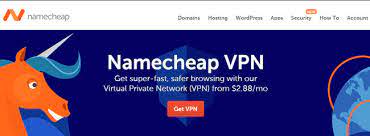
Table of Contents
What is a VPN
VPN stands for Virtual Private Network and gives you online anonymity and privacy through a private network from a public internet connection. VPNs hide your internet address so what you’re doing online cannot be traced. It will provide you with a secure and encrypted connection, even more than a secured Wi-Fi hotspot.
Why Choose A VPN
When you browse the internet on unsecured Wi-Fi networks, you expose your private information to the world. The idea of protecting your online activities, should be a priority to everyone.
You need to realize that any data transmitted during an online session is capable of being “eavesdropped” on by total strangers, if you’re not logged into a private, password-protected, Wi-Fi network. So, if you’re standing in a line somewhere, logged into a public network, checking your bank account, any hacker could get your private information. That’s why you should at least look into getting a VPN service. If your online privacy and security is no concern to you, then you don’t need a VPN.
VPNs protect your online activities through encryption and anonymity. They can simply hide your online browsing, as well as other online activities, like paying bills, online shopping and sending emails.
How Does A VPN Work
You would first log on to the VPN service, then connect to the internet. They hide your online activities through the use of encryption, to jumble the information that is sent over a Wi-Fi network. In other words, it makes the data indecipherable. The problem with a public Wi-Fi network is that all the information is free for all to see. Anybody can monitor your activity on a public network, so having a VPN prevents that.
A VPN will generate a way for private network communications to be sent over a public network, which could be thousands of miles away. So the browsing you’re doing in one place, can be made to appear being done thousands of miles away.
This also means that your entire browsing history can be hidden. With a public network, your search history can be discovered, but with a VPN, it’s encrypted and hidden. Your internet activity will be linked to the VPN server’s IP address instead of yours. Most VPNs have servers all over the world so your online activity could appear to be coming from any one of them. Your personal online activity is kept private with a VPN.
If you use a VPN, your internet connection is through the VPN server, acting as your middle-man, to hide your personal ISP and therefore your identity.
Picking a VPN
The following is list of questions you should have answered before deciding on a VPN:
- What is the cost? This is probably what most people are concerned with and there are free alternatives available, however, remember you will get what you pay for. Free services generally don’t offer the most secure protocols, the highest connection speeds, or a large number of servers globally, nor provide you good technical support.
- Can you set up VPN access on multiple devices? As many people have more than one device that will need internet access, knowing that you will be able to use the VPN on each at the same time is important.
- How will your privacy be respected? Do they track or log your online activity? Afterall, you’re getting it to make sure your online activity is anonymous and private.
- Do they use the most current protocol? This refers to the software or set of rules that are used to negotiate a connection between the VPN client and the VPN server and will it support all the major operating systems.
- Where are their servers located? If you want to make sure it looks like you’re accessing the internet from a particular location, make sure they have a server there.
- Are there data limits? You want to make sure you’ll have unmetered bandwidth without data limits if you use the internet a lot.
You may have other concerns not listed here, but the idea is to do your homework and make sure you will get your needs met. A good VPN is better than a public Wi-Fi hotspot because it is more private, more secure and can hide your online activities, if that’s important to you.
Why Choose Namecheap VPN
They can give you good answers to the above questions:
- COST
Though Namecheap is more known as a domain registrar, they are currently celebrating year 2 of their VPN services. They are offering 2 free months of service if you sign up anytime from Dec. 2 – Dec. 31.
They offer 3 different plans:
1 Year Plan
$0.83/mo
86% off
You pay $10.00 – Renews at $34.56
3 Year Plan
$1.88/mo
68% off
You Pay $67.68
You will also get a 30-day money-back guarantee.
- ACCESS ON MULTIPLE DEVICES – Protection of unlimited devices all at once.
- PRIVACY RESPECTED – No logs. They don’t track, collect or share what you do online.
- USE OF MOST CURRENT PROTOCOL – Compatible apps include: Android, Windows, iOS, macOS, Linux, and Routers.
- SERVER LOCATIONS – 1000 servers in 50+ locations
- DATA LIMITS – No restrictive data caps.
FINAL THOUGHTS
If you’re new to the idea of VPN, Namecheap would be a great source to start with, even if only for a trial basis. It is very easy to use, once signed up, just click the big red button and get on with your online activity.
